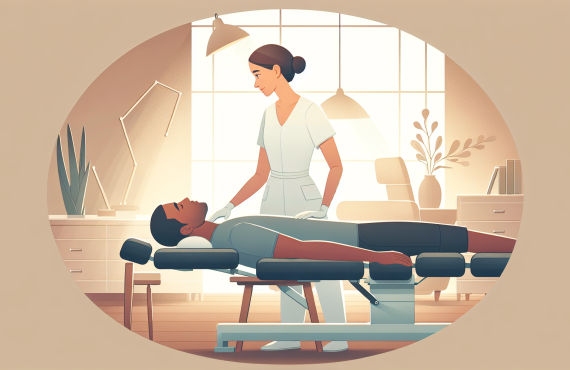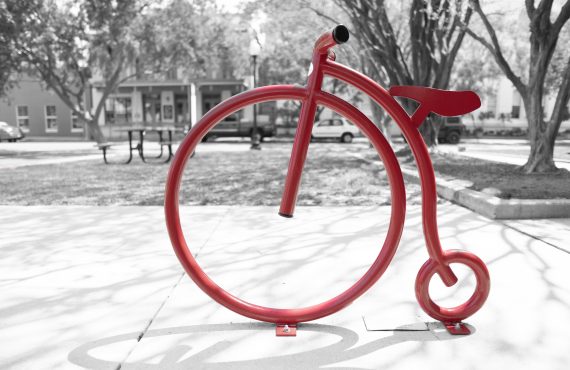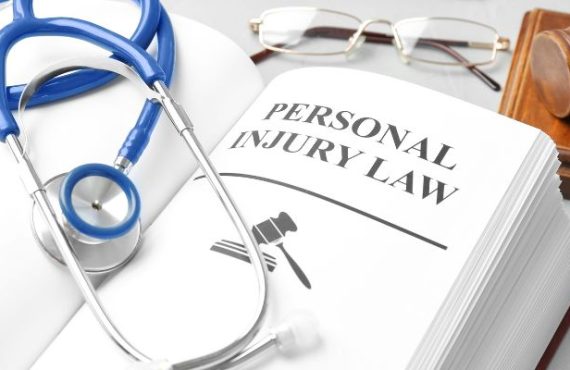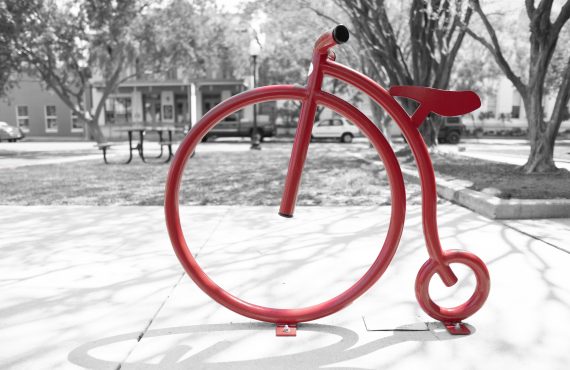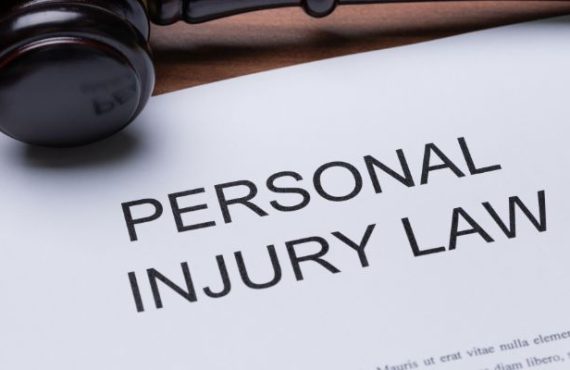Looking for the best personal injury chiropractor in Florida? Look no further! Whether you’ve been in a car accident, suffered a slip and fall, or experienced any other type of personal injury, finding the right chiropractic care is essential to your recovery. With numerous options available, it can be overwhelming to choose the best chiropractor for your specific needs. But don’t worry, we’ve got you covered! In this article, we’ll guide you through the process of finding the best personal injury chiropractor in Florida, ensuring that you receive the care and support you deserve. So, let’s get started on your journey towards healing and well-being!
Table of Contents
Understanding Personal Injury Chiropractors
What Does a Personal Injury Chiropractor Do?
A personal injury chiropractor specializes in treating injuries that are the result of accidents or trauma. They focus on providing non-invasive and drug-free treatments for musculoskeletal issues, such as whiplash, back pain, neck pain, and soft tissue injuries. These chiropractors are trained to assess and diagnose injuries, develop personalized treatment plans, and help patients recover and regain their mobility.
Why Do You Need a Personal Injury Chiropractor?
When you sustain an injury due to an accident, seeking immediate medical attention is crucial. While traditional medical practitioners may focus on prescribing pain medication or recommending surgery, a personal injury chiropractor offers a holistic approach to healing. They address the root cause of your pain and use chiropractic techniques to alleviate discomfort, restore function, and promote overall wellness.
How Can a Personal Injury Chiropractor Help?
Personal injury chiropractors are trained to perform various techniques, such as spinal adjustments, joint mobilization, soft tissue therapy, and rehabilitative exercises. These treatments help reduce inflammation, improve circulation, restore joint mobility, and alleviate pain. By addressing underlying musculoskeletal issues, a chiropractor can facilitate the healing process, optimize physical function, and minimize the risk of long-term complications.
Seeking Immediate Treatment After an Injury
It is crucial to seek immediate treatment from a personal injury chiropractor after sustaining an injury. Delaying treatment can lead to further complications and prolong the recovery process. By receiving prompt care, you can ensure an accurate diagnosis and start the appropriate treatment plan right away. Seeking immediate treatment also helps document your injuries, which can be essential for insurance claims or legal proceedings should they arise.
Qualities to Look for in a Personal Injury Chiropractor
Education and Training
When choosing a personal injury chiropractor, it is vital to consider their education and training. Look for a chiropractor who has graduated from an accredited chiropractic school and has obtained the necessary licenses and certifications. Additionally, check if they participate in continuing education to stay updated on the latest advancements in the field and ensure they provide the highest standard of care.
Experience and Expertise
Experience plays a significant role in a chiropractor’s ability to diagnose and treat personal injuries effectively. Look for a chiropractor who has extensive experience in dealing with similar cases and has a track record of successful outcomes. An experienced chiropractor will have a better understanding of the complexities of personal injuries and can develop a targeted treatment plan to meet your specific needs.
Specialization in Personal Injury
Choosing a chiropractor who specializes in personal injury is crucial as they possess in-depth knowledge and experience in this field. Personal injury chiropractors have a comprehensive understanding of the common types of injuries that result from accidents and can tailor their treatment approaches accordingly. They are familiar with the legal aspects surrounding personal injury cases and can provide the necessary documentation for insurance claims or legal proceedings.
Positive Reputation and Reviews
Before selecting a personal injury chiropractor, take the time to research their reputation and read patient reviews. Look for chiropractors who have positive feedback from their patients, indicating their satisfaction with the quality of care received. Additionally, consider asking for recommendations from friends, family, or healthcare professionals who may have had experiences with personal injury chiropractors in the past.

Finding Personal Injury Chiropractors in Florida
Researching Online Directories
One way to find personal injury chiropractors in Florida is by using online directories. These directories provide a comprehensive list of chiropractic clinics in your area, along with their contact information and specialization. Take the time to research each chiropractor’s website, read reviews, and learn about their services to help narrow down your options.
Asking for Recommendations
Seeking recommendations from trusted individuals, such as friends, family, or healthcare providers, can be incredibly valuable in finding a reliable personal injury chiropractor. Ask if they have had positive experiences with any chiropractors in the area and if they would recommend them. Personal referrals can help you find chiropractors who have a proven track record of delivering excellent care.
Checking with Insurance Providers
If you have health insurance coverage, it is essential to check with your insurance provider to see which chiropractors are in-network. By choosing an in-network chiropractor, you can optimize your insurance coverage and potentially lower out-of-pocket expenses. Insurance providers often have directories or online tools that allow you to search for chiropractors who accept your insurance plan.
Consulting with Attorneys
If you are involved in a personal injury case, it may be beneficial to consult with an attorney who specializes in personal injury law. Attorneys who have experience in this field often have a network of trusted chiropractors they work with. They can provide recommendations and help you find a chiropractor who can provide the necessary documentation and expert testimony for your case, if needed.
Evaluating Personal Injury Chiropractors
Initial Consultation
Once you have compiled a list of potential personal injury chiropractors, schedule an initial consultation with each of them. During the consultation, pay attention to the chiropractor’s demeanor, communication style, and willingness to answer your questions. This will help you assess whether you feel comfortable and confident in their abilities to provide the care you need.
Assessment and Diagnosis
A thorough assessment and accurate diagnosis are essential for effective treatment. During your initial visit, the chiropractor should perform a comprehensive evaluation, which may include a detailed medical history review, physical examination, and additional diagnostic tests if necessary. This process allows the chiropractor to identify the underlying issues and develop an appropriate treatment plan tailored to your specific needs.
Treatment Options
Discuss the treatment options available to you with the chiropractor. A reputable personal injury chiropractor will present you with a range of evidence-based treatment options, explaining the potential benefits and risks associated with each. They should address your concerns and preferences while ensuring that the treatment plan aligns with your goals for recovery.
Collaboration with Other Healthcare Professionals
In some cases, personal injury chiropractors may collaborate with other healthcare professionals to provide comprehensive care. This interdisciplinary approach can be beneficial, especially if your injuries require interventions beyond chiropractic care. Ask the chiropractor if they have experience collaborating with other healthcare providers such as physical therapists, massage therapists, or pain management specialists.

Questions to Ask When Choosing a Personal Injury Chiropractor
What is Your Approach to Treating Personal Injuries?
Understanding a chiropractor’s treatment philosophy and approach is essential. Ask them to explain how they typically approach personal injury cases and what techniques or methods they utilize. This will help you determine if their approach aligns with your preferences and goals for recovery.
How Many Personal Injury Cases Have You Handled?
It is important to choose a chiropractor with experience in handling personal injury cases. Inquire about the number of cases they have handled and their success rate. A chiropractor who has dealt with a significant number of personal injury cases will likely have the expertise and knowledge to provide effective treatment and support throughout your recovery process.
What Techniques and Methods Do You Use?
Chiropractors utilize a variety of techniques and methods to treat personal injuries. Ask about the specific techniques they use and their rationale behind selecting each technique. This can help you understand the treatment process better, ensuring that you are comfortable with the approach being taken.
Do You Accept My Insurance?
If you have health insurance coverage, it is important to inquire about the chiropractor’s acceptance of your insurance plan. Clarify the coverage details and any relevant out-of-pocket expenses. This will help you make an informed decision and avoid unexpected financial burdens.
Understanding the Costs of Personal Injury Chiropractic Care
Insurance Coverage
The extent of your insurance coverage for personal injury chiropractic care may vary depending on your insurance plan. Contact your insurance provider to understand the specific coverage details, any deductibles or copayments, and any limitations or requirements that may apply.
Out-of-Pocket Expenses
In addition to insurance coverage, you may have out-of-pocket expenses for personal injury chiropractic care. These expenses can include copayments, deductibles, or fees for additional services or modalities provided during treatment. Clarify the cost structure with the chiropractor to ensure that you are financially prepared.
Payment Plans and Financial Options
If you are concerned about the financial aspects of personal injury chiropractic care, inquire about payment plans or flexible financial options that the chiropractor may offer. Some chiropractors may provide installment plans, discounted packages, or accept financing options, easing the burden of upfront costs.
Documenting Expenses for Legal Proceedings
In the case of legal proceedings related to your personal injury, it is vital to maintain detailed records of all your chiropractic expenses. Keep a record of all invoices, receipts, and documentation associated with your chiropractic care. This documentation can serve as evidence for your case and help ensure that you are appropriately compensated for your injuries.

Red Flags to Watch Out for When Choosing a Personal Injury Chiropractor
Lack of Credentials or Certifications
One red flag to watch out for is a personal injury chiropractor who lacks proper credentials and certifications. Ensure that the chiropractor has graduated from an accredited chiropractic school, holds the necessary licenses, and has certifications that reflect their expertise in personal injury care.
High Pressure Sales Tactics
Beware of personal injury chiropractors who employ high-pressure sales tactics to convince you to commit to extensive treatment plans or additional services. A reputable chiropractor will provide treatment recommendations based on your specific needs and goals, without pressuring you into unnecessary or excessive care.
Promises of Guaranteed Results
Be cautious of chiropractors who make promises of guaranteed results or quick fixes. Every injury and individual is unique, and no chiropractor can guarantee specific outcomes. Look for a chiropractor who is transparent about the limitations of treatment and able to provide realistic expectations for your recovery.
Limited Treatment Options
Avoid chiropractors who only offer a narrow range of treatment options without considering alternative approaches. Effective personal injury care often requires a combination of various techniques and modalities tailored to the individual. Choose a chiropractor who offers a diverse array of evidence-based treatment options.
Reviewing and Comparing Personal Injury Chiropractors
Reviewing Credentials and Certifications
Before making a decision, review the credentials and certifications of each personal injury chiropractor you are considering. Verify their educational background, licenses, and any additional certifications that indicate their specialization in personal injury care.
Reading Patient Reviews and Testimonials
Patient reviews and testimonials provide valuable insights into the quality of care a chiropractor provides. Read reviews from previous patients to learn about their experiences and satisfaction levels. Look for chiropractors who consistently receive positive feedback and have a reputation for delivering excellent care.
Requesting Consultations with Multiple Chiropractors
To make an informed choice, it is beneficial to request consultations with multiple chiropractors. This allows you to compare their approaches, treatment plans, and communication styles. By meeting with different chiropractors, you can assess who best aligns with your needs and makes you feel comfortable.
Comparing Treatment Plans and Recommendations
During your consultations, ask each chiropractor to provide a detailed treatment plan and recommendations specific to your injuries. Compare these plans, taking into consideration the proposed techniques, estimated duration of treatment, and expected outcomes. Choose the chiropractor whose treatment plan aligns with your goals and resonates with you the most.
The Importance of Open Communication with a Personal Injury Chiropractor
Providing Accurate Medical History and Information
Open communication with your personal injury chiropractor begins with providing accurate and detailed medical history and information. Share any relevant past injuries, surgeries, or conditions that may impact your treatment. This ensures that the chiropractor has a comprehensive understanding of your health background and can tailor their approach accordingly.
Discussing Treatment Expectations and Goals
During your consultations, engage in a discussion with the chiropractor about your treatment expectations and goals. Clearly communicate what you hope to achieve through chiropractic care, such as pain relief, improved mobility, or faster recovery. This allows the chiropractor to incorporate your expectations into the treatment plan and develop realistic goals.
Seeking Clarification on Treatment Approach and Techniques
If you have any concerns or questions about the proposed treatment approach or techniques, do not hesitate to seek clarification from your chiropractor. A good chiropractor will take the time to address your concerns, explain the rationale behind their recommendations, and adjust the treatment plan to accommodate your comfort level.
Reporting Any Changes or Concerns
Throughout the course of your treatment, it is important to report any changes or concerns to your chiropractor. If you experience new symptoms, a change in pain levels, or any other issues, inform your chiropractor promptly. Open communication ensures that adjustments can be made to your treatment plan as needed, promoting the best possible outcomes.
Conclusion
Finding the right personal injury chiropractor in Florida can make all the difference in your recovery journey. By understanding what personal injury chiropractors do, evaluating their qualities, asking the right questions, and taking various factors into consideration, you can find a chiropractor who meets your needs and provides the highest quality of care. Remember, open communication and active participation in your treatment are key to achieving optimal results.



